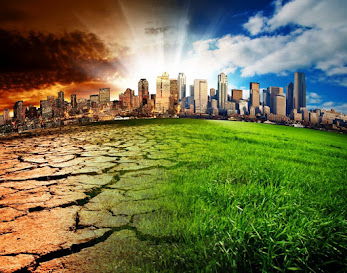We need to stop global warming because it poses a wide range of serious and detrimental consequences for the planet, its ecosystems, and human societies. Here are some of the key reasons why it is imperative to take action to mitigate and ultimately halt global warming
How Can We Stop Global Warming Essay
Protection of Ecosystems and Biodiversity: Global warming disrupts ecosystems and habitats, leading to shifts in species distributions and increased rates of extinction. By reducing global warming, we can help protect biodiversity and preserve the intricate web of life on Earth.
Sea Level Rise: Rising global temperatures cause the polar ice caps and glaciers to melt, leading to rising sea levels. This puts coastal communities at risk of flooding and inundation, threatening infrastructure and displacing millions of people.
Extreme Weather Events: Global warming is associated with an increase in the frequency and intensity of extreme weather events, including hurricanes, heatwaves, droughts, floods, and wildfires. These events can cause substantial damage, loss of life, and economic hardship.
Agriculture and Food Security: Altered weather patterns and increased temperatures can disrupt agriculture, leading to reduced crop yields and food scarcity. This affects food security for millions of people around the world.
Human Health: Higher temperatures can exacerbate heat-related illnesses, worsen air quality, and contribute to the spread of diseases carried by insects. Global warming poses significant risks to public health.
Water Resources: Changes in precipitation patterns and the melting of glaciers can affect the availability of freshwater resources, impacting drinking water supplies, agriculture, and ecosystems.
Economic Costs: The economic costs of global warming are substantial, including damage to infrastructure, increased healthcare expenses, reduced agricultural productivity, and losses in industries such as tourism and fisheries.
Social and Political Instability: Climate change, driven by global warming, can exacerbate social and political instability by contributing to resource scarcity, migration, and conflicts over limited resources.
Global Cooperation: Addressing global warming requires international cooperation and collaboration. It is an opportunity for nations to work together to address a shared global challenge and promote peace and cooperation.
Future Generations: Taking action to stop global warming is an ethical responsibility to protect the well-being of future generations. Failure to act could leave a legacy of a planet with diminished resources, increased risks, and a degraded environment.
Efforts to stop global warming involve reducing greenhouse gas emissions through the adoption of cleaner and more sustainable energy sources, improving energy efficiency, reforestation, sustainable land-use practices, and international agreements such as the Paris Agreement. It is a critical and urgent imperative to safeguard the health and sustainability of our planet for current and future generations.






0 Comments